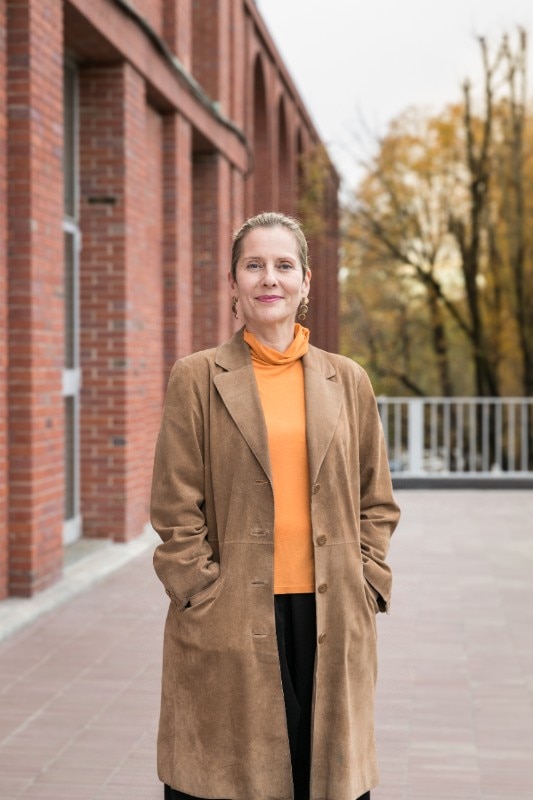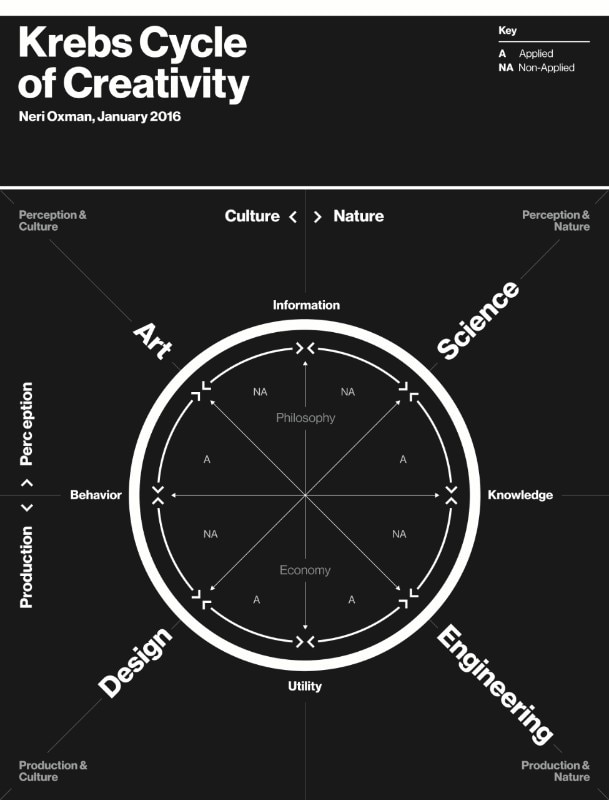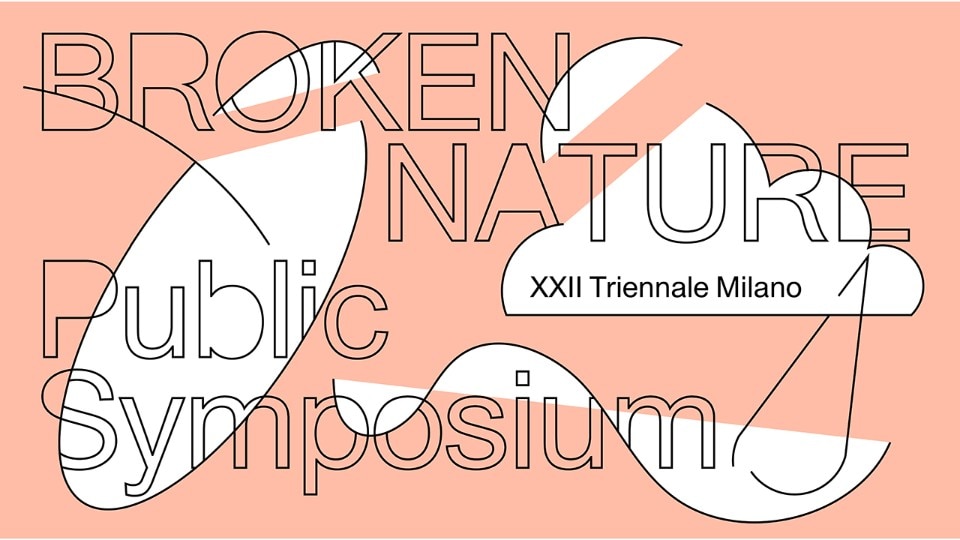A one-day symposium, June 19, 2018, curated by Paola Antonelli and entitled “Broken nature: Design takes on Human Survival”, in anticipation of the upcoming XXII Triennale. A day of study at the Teatro dell'Arte introduces some central themes of the XXII Triennale di Milano, scheduled from 1 March to 1 September 2019. The meeting involves an international group of designers, architects, scientists, curators and intellectuals with different paths and experiences and offers a dynamic comparison through presentations, round tables, debates and video contributions.This one-day symposium will be divided in four chapters—Restorative Design, Magic Pragmatism, Complex Systems, and Long-Term Attitudes—that act as investigative angles for the exhibition.

Free and open to the public. For online registration click here or see below.
The event will be held in English with simultaneous translation into Italian, and will be live-streamed on La Triennale di Milano’s Facebook page and YouTube channel.

Here is the program.
9:00–9:30am
Registration
9:30–9:45am
Welcome by Stefano Boeri, President of La Triennale di Milano
9:45–10:05am
Introduction by Paola Antonelli, Curator of the XXII Triennale
10:05–11:30am
Restorative Design
The relationship between human beings and their habitat is an intricate weaving composed of numerous strands. The pace at which negative change is happening––in other words, the pace at which natural resources are being depleted, displacement is occurring, ocean levels are rising, urban populations are growing, and xenophobic sentiments are spreading, to name just a few virulent developments—suggests that some of these bonds might be broken beyond repair, while others, although frayed, remain in place. In order to restore the ones that still have hope of survival and rebuild some of those that have been lost, humans must move to make reparations. What strategies can designers, architects, artists, and scientists propose in order to make tangible amends to the world humans inhabit and mold?
10:05–10:15am Sarah Ichioka
10:15–10:30am Lorenzo Pezzani
10:30–10:40am Khaled Malas
10:40–11:15am Conversation moderated by Ala Tannir
11:15–11:45am Gabriella Gómez-Mont, followed by a conversation with Stefano Micelli
11:45–12:00am
COFFEE BREAK
12:00pm–1:30pm
Magic Pragmatism
In a world that is at once increasingly jumpy, unstable, and lethargic, creative endeavors are a testimony to the revolutionary potential of imagination. In fact, designers, artists, and architects operating in a favorable space as mediators between theory and practice can be active participants in the reorganization of established systems. By revealing radically new possibilities, and therefore proposing alternative ways of living and existing on the planet, their visions can inspire positive change in people and move them to take a critical stance on their shared experience, and to work toward better conditions for all. How does design embrace utopian ideals as a guiding force to transform the world, and at the same time commit to materializing such principles into being, without lingering in speculations or getting trapped in naïve optimism?
12:00pm–12:10pm Introduction by Paola Antonelli
12:10pm–12:20pm Mariana Pestana
12:20–12:30pm Maholo Uchida
12:30–12:35pm Video: Formafantasma
12:35–12:55pm Respondent: Rania Ghosn
12:55–1:30pm Conversation moderated by Paola Antonelli
1:30–2:45pm
LUNCH
2:45–4:10pm
Complex Systems
In evaluating distinctions between humans and nature, discourses around the Anthropocene tend to flatten humanity into one single entity, and often risk obscuring the disparities and injustices that individuals and societies across the globe suffer from. The reality is that resource depletion, ecological degradation, and technological advancements do not affect people equally. Artificial Intelligence reveals deeply rooted social, racial, and economic biases; warming oceans are wiping out maritime resources on which native populations—human or otherwise—depend; and water is used to exert pressure on besieged populations in areas of conflict, to name just three examples. Yet, a rising trend to isolate global challenges and immunize—through indifference or orchestrated denial—oneself and one’s community from all that is not immediately visible reigns. What tools are available to weave a more nuanced and interconnected understanding of the world? How does one achieve such complexity and fullness without risking assimilation of the personal and the specific?
2:45–2:50pm
Video contributions
2:50–3:05pm Introduction by Adam Bly
3:05–3:15pm Michael John Gorman
3:15–3:25pm Koyo Kouoh
3:25–3:35pm Marina Otero Verzier
3:35–4:10pm Conversation moderated by Adam Bly
4:10–4:25pm
COFFEE BREAK
4:25–5:45pm
Long-Term Attitudes
Present actions—sometimes informed by previous attitudes—carry in them important intergenerational repercussions. Despite noble intentions toward other humans and animals, plants, and places, people are still—as individuals and within communities—tracking a course of destruction through overconsumption and disregard for countless forms of life, including their own. Such rapidly forming patterns pose serious tensions with ecological as well as sociopolitical processes that are inherently slower and more gradual. Beyond anxious accounts of a dystopian future, can design serve to readjust human rhythms into better alignment with long-term environmental considerations? At a time when many species are going extinct while other organisms trapped in ice sheets and permafrost for centuries may make their comeback, how long do national borders last? And what is the duration of smell? How does one adopt a harmonious understanding of such different yet coexisting temporalities in order to attempt survival?
4:25–4:30pm
Video contributions
4:30–4:40pm Introduction by Paola Antonelli
4:40–4:50pm Alexandra Daisy Ginsberg
4:50–5:00pm Elisa Pasqual
5:00–5:10pm Jamer Hunt
5:10–5:45pm Conversation moderated by Lorenza Baroncelli
5:45–6:15pm
Closing remarks by Paola Antonelli
6:20–7:20pm
Reception
7:30–9:00pm
Screening of Donna Haraway:Story Telling for Earthly Survival(2016) by Fabrizio Terranova
Synopsis: Donna Haraway is a prominent scholar in the field of science and technology, a feminist, and a science-fiction enthusiast who works at building a bridge between science and fiction. She became known in the 1980s through her work on gender, identity, and technology, which broke with the prevailing trends and opened the door to a frank and cheerful trans species feminism. Haraway is a gifted storyteller who paints a rebellious and hopeful universe teeming with critters and trans species, in an era of disasters. Brussels filmmaker Fabrizio Terranova visited Donna Haraway at her home in California, living with her – almost literally, for a few weeks, and there produced a quirky film portrait. Terranova allowed Haraway to speak in her own environment, using attractive staging that emphasised the playful, cerebral sensitivity of the scientist. The result is a rare, candid, intellectual portrait of a highly original thinker.
- Title:
- Broken Nature: Design takes on Human Survival
- Location:
- Teatro dell'Arte - La Triennale
- When:
- 19 June 2018, from 09:30 am, free entry (registration online)
- Adress:
- Viale Alemagna 6 20121 Milano




